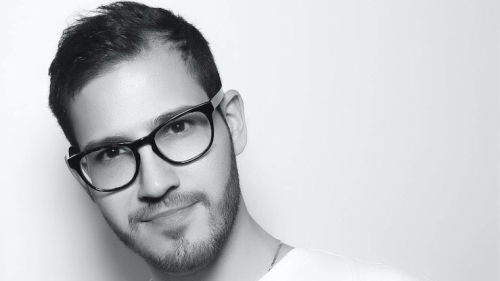
Jordan Cohen
Jordan Cohen (BS ’11) serves as Executive Director of Communications at The New York Times where he helps oversee external communications, media appearances, and speaking engagements for Times reporters, editors and business executives.
He also collaborates with teams across The New York Times Company to increase the global reach and engagement of Times journalism by implementing and measuring creative audience development and public relations initiatives. A graduate of NYU Steinhardt’s Department of Media, Culture and Communication (MCC), Jordan is an MCC Alumni Board member.
We spoke to him about what it is like to work on the communications team at The New York Times.
Describe a typical work day.
I start my day fairly early, compiling a newsletter of interesting media stories that gets sent to nearly every employee of The New York Times Company before 7:30 a.m. Needless to say, coffee is crucial. The newsletter is filled with relevant stories about The Times — both positive and critical — and about the overall media landscape that I think my colleagues need to be aware of. The funny thing about sending this to the entire company is that it’s usually the first thing anyone mentions to me when they meet me for the first time. I’m glad they’re reading it!
I’m kind of obsessed with how much our industry is changing. I read a lot of other media newsletters, like POLITICO’s Morning Media, The Wall Street Journal’s CMO Today, Atlantic Media’s The Idea, and CNN’s Reliable Sources, to keep up with those changes as best as I can.
The New York Times helps people understand the world through unrivaled, on-the-ground, expert and deeply reported independent journalism. It’s the job of my team to ensure people know that, every day. A typical day includes determining the best broadcast and digital outlets to amplify Times journalism, making sure we’re connecting the hard work of our reporters with the right audiences. Coordinating media appearances for our reporters and business leaders is also a critical part of my job. We’re always trying to be strategic with not only how we tell our story, but where we tell it.
My team is also responsible for internal communications at The Times, such as sharing news about the company (like staff updates and new business initiatives) to Times employees. Whether it’s making sure employees are more informed or simply feel more engaged, internal communication plays such an important role in a how a company succeeds. Our employees care deeply about The Times and it’s the job of my team to make sure they feel connected to its mission, values, and goals.
What kind of social engagement initiatives has your team been involved in?
Whether it’s an interview with the magazine’s editor-in-chief on WNYCor with a trade publication like Adweek, my team worked hard to communicate the Magazine’s constant innovation and dedication to bringing its readers (and listeners!) the best news consumption experience.
It has been so rewarding crafting a narrative around all of the exciting things The New York Times has been achieving with audio storytelling. With that said, if you’re not already listening to “The Daily,” well, you should.
“May you live in interesting times,” is an English translation of an old Chinese curse. How has your job changed in your seven years at The Times?
Something that hasn’t changed is that it’s always been an incredible privilege to work at The New York Times. I think I’m still trying to overcome a bit of imposter syndrome. But when I first started in 2011, the media landscape looked pretty different than it does now. While we’ve always been competing with others for audience attention, we’re now more focused on explaining to readers The Times’s worthiness to be paid for. And I think we’re doing a pretty good job at that.
The pace of my job has certainly changed over the last few years, too — it seems like news is breaking more rapidly than ever before and it’s nearly impossible to keep up with it. With that said, it’s never been a more exciting time to work in this industry, let alone be a part of the news organization that’s changing the world with its journalism. From our investigative reporting on prominent men across industries who were accused of sexual harassment and misconduct to visual investigations that offer readers a unique analysis of some of today’s biggest stories, I’m honored to promote the great work of Times journalists.
Tell me about your shirt. Has the debate about “truth” influenced your working day?
Thanks for noticing my shirt! It was inspired by The Times’s “Truth” brand campaign highlighting the importance of facts and encouraging the support of independent journalism. Justin Timberlake is also a fan.
Independent journalism is more important now than ever before, and my team helps communicate how vital The Times’s role is in that pursuit of truth through various channels. For example, we made sure The Times’s 18-month investigationinto President Trump’s finances was covered by all major media outlets (including television interviews with the reporters who broke the story on ABC’s Good Morning America, Fox News’ Shepard Smith Reporting and MSNBC’s The 11th Hour with Brian Williams).
With every interview we book or story we pitch, we always want to make sure audiences understand the resources and the expertise that it takes to cover the world and to find the truth. So… subscribe!
How did your education at NYU prepare you for your position as director of communications?
As a communications major at Steinhardt, I was surrounded by dedicated and passionate people who were constantly teaching me new things about my field. I learned a lot from my fellow classmates (and not just about what TV series to binge-watch during the Great Writer’s Strike of 2007). They taught me how to have good work ethic and how to challenge myself; skills I continue to hone to this day.

